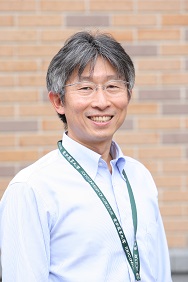Keynote
Ken Iwatsuki, Ph.D. (Faculty of Applied Bioscience, Tokyo University of Agriculture)

- Title
Generation and characterization of endoderm-derived chemosensory cells from non-human primates
- Abstract
Recent studies have revealed that taste cells not only exist in the oral cavity but also distributed in other endoderm-derived tissues including intestine, pancreas and airways. However, since cells from these tissues are not easy to manipulate, there is limited molecular information on how chemicals are perceived and how these sensory cells regenerate. Our goal is to generate in vitro 3D cell culture system to study the molecular mechanism of chemical perception. We have previously identified taste stem cells and generated taste organoid culture system by using mouse as an animal model. Since rodents and humans have different taste selectivity, we were not able to simply apply rodents’ data to humans. To generate the experimental system that mimic chemosensory responses similar to humans, it was necessary that we introduce primate tissues for the research. Therefore, the objective of my research is to generate taste, intestinal and pancreatic organoids from non-human primates and characterize chemosensory cells that reside within organoids.
In my presentation, I would like to introduce generation of primate organoids from several endoderm-derived tissues and our recent attempt to use these organoids for chemosensory researches. We hope the organoid culture system will be one of the tools to objectively measure food factors, drugs and hazardous compounds. - Profile
Ken Iwatsuki is a professor in the department of Nutritional Science and Food Safety at Tokyo University of Agriculture. He received his undergraduate degree from Nagoya University and his PhD from Tokyo University. Several years after working at Tokyo Metropolitan Institute of Medical Science, he became a postdoctoral fellow at Mount Sinai School of Medicine in NY where he started his new career as a taste cell scientist. During his stay in NY, he found that two morphogens, Wnt10b and Shh, are essential for taste papillae development. In 2007, he returned to Japan to join one of the major food company, Ajinomoto. In 2014 he returned to academia to continue his basic research to manipulate endoderm-derived stem cells. Since then, he has developed 3D-culture system to analyze the functions of sensory cells in the tongue, intestine and pancreas using mice and monkeys.
